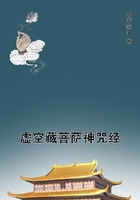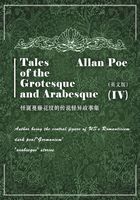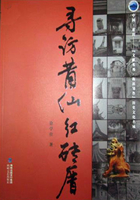He flung the cup at Dougal's head and said he had given him blood instead of Burgundy; and, sure aneugh, the lass washed clotted blood aff the carpet the neist day. The jackanape they caa'd Major Weir, it jibbered and cried as if it was mocking its master. My gudesire's head was like to turn; he forgot baith siller and receipt, and downstairs he banged; but, as he ran, the shrieks came fainter and fainter; there was a deep-drawn shivering groan, and word gaed through the castle that the laird was dead.
Weel, away came my gudesire wi' his finger in his mouth, and his best hope was that Dougal had seen the money-bag and heard the laird speak of writing the receipt. The young laird, now Sir John, came from Edinburgh to see things put to rights. Sir John and his father never 'greed weel. Sir John had been bred an advocate, and afterward sat in the last Scots Parliament and voted for the Union, having gotten, it was thought, a rug of the compensations--if his father could have come out of his grave he would have brained him for it on his awn hearthstane. Some thought it was easier counting with the auld rough knight than the fair-spoken young ane--but mair of that anon.
Dougal MacCallum, poor body, neither grat nor graned, but gaed about the house looking like a corpse, but directing, as was his duty, a' t he order of the grand funeral. Now Dougal looked aye waur and waur when night was coming, and was aye the last to gang to his bed, whilk was in a little round just opposite the chamber of dais, whilk his master occupied while he was living, and where he now lay in state, as they can'd it, weeladay! The night before the funeral Dougal could keep his awn counsel nae longer; he came doun wi' his proud spirit, and fairly asked auld Hutcheon to sit in his room with him for an hour. When they were in the round, Dougal took a tass of brandy to himsell, and gave another to Hutcheon, and wished him all health and lang life, and said that, for himsell, he wasna lang for this warld; f or that every night since Sir Robert's death his silver call had sounded from the state chamber just as it used to do at nights in his lifetime to call Dougal to help to turn him in his bed. Dougal said that being alone with the dead on that floor of the tower (for naebody cared to wake Sir Robert Redgauntlet like another corpse), he had never daured to answer the call, but that now his conscience checked him for neglecting his duty; for, "though death breaks service," said MacCallum, "it shall never weak my service to Sir Robert; and I will answer his next whistle, so be you will stand by me, Hutcheon."
Hutcheon had nae will to the wark, but he had stood by Dougal in battle and broil, and he wad not fail him at this pinch; so doun the carles sat ower a stoup of brandy, and Hutcheon, who was something of a clerk, would have read a chapter of the Bible; but Dougal would hear naething but a blaud of Davie Lindsay, whilk was the waur preparation.
When midnight came, and the house was quiet as the grave, sure enough the silver whistle sounded as sharp and shrill as if Sir Robert was blowing it; and up got the twa auld serving-men, and tottered into the room where the dead man lay. Hutcheon saw aneugh at the first glance; f or there were torches in the room, which showed him the foul fiend, in his ain shape, sitting on the laird's coffin! Ower he couped as if he had been dead. He could not tell how lang he lay in a trance at the door, but when he gathered himsell he cried on his neighbour, and getting nae answer raised the house, when Dougal was found lying dead within twa steps of the bed where his master's coffin was placed. As for the whistle, it was gane anes and aye; but mony a time was it heard at the top of the house on the bartizan, and amang the auld chimneys and turrets where the howlets have their nests. Sir John hushed the matter up, and the funeral passed over without mair bogie wark.
But when a' was ower, and the laird was beginning to settle his affairs, every tenant was called up for his arrears, and my gudesire for the full sum that stood against him in the rental-book. Weel, away he trots to the castle to tell his story, and there he is introduced to Sir John, sitting in his father's chair, in deep mourning, with weepers and hanging cravat, and a small walking-rapier by his side, instead of the auld broadsword that had a hunderweight of steel about it, what with blade, chape, and basket-hilt. I have heard their communings so often tauld ower that I almost think I was there mysell, though I couldna be born at the time. (In fact, Alan, my companion, mimicked, with a good deal of humour, the flattering, conciliating tone of the tenant's address and the hypocritical melancholy of the laird's reply. His grandfather, he said, had while he spoke, his eye fixed on the rental-book, as if it were a mastiff-dog that he was afraid would spring up and bite him.)
"I wuss ye joy, sir, of the head seat and the white loaf and the brid lairdship. Your father was a kind man to freends and followers; muckle grace to you, Sir John, to fill his shoon--his boots, I suld say, for he seldom wore shoon, unless it were muils when he had the gout."
"Ay, Steenie," quoth the laird, sighing deeply, and putting his napkin to his een, "his was a sudden call, and he will be missed in the country; no time to set his house in order--weel prepared Godward, no doubt, which is the root of the matter; but left us behind a tangled hesp to wind, Steenie. Hem! Hem! We maun go to business, Steenie; much to do, and little time to do it in."
Here he opened the fatal volume. I have heard of a thing they call Doomsday book--I am clear it has been a rental of back-ganging tenants.
"Stephen," said Sir John, still in the same soft, sleekit tone of voice--"Stephen Stevenson, or Steenson, ye are down here for a year's rent behind the hand--due at last term."
/Stephen./ Please your honour, Sir John, I paid it to your father.
/Sir John./ Ye took a receipt, then, doubtless, Stephen, and can produce it?














